Foyle's War: Series 5
Introduction
Things have changed a little since the last time we caught up with Detective Chief Superintendent Foyle (Michael Kitchen). Foyle has resigned from the Hastings constabulary and is busy writing a book about this subject with slow but enthusiastic typist and ex-driver Samantha Stewart (Honeysuckle Weeks). Meanwhile, Foyle's office has been unenthusiastically taken over by DSC Meredith (Nicholas Day) and is so underwhelming that Detective Sergeant Paul Milner (Anthony Howell) is looking to transfer out, despite investigating a black market operation that is potentially huge. Milner has the chief suspect at running this operation in custody and after threats from his suspect, it appears that attempts on his life are being made.
Meanwhile there's an incident that has implications for the local and secret Air Ministry map making facility at Beverly Lodge. The Nazi government wouldn't let any maps of Germany leave the country after 1933 and so this facility has the unenviable task of creating maps from aerial reconnaissance photographs of Germany. One of the key workers there is Henry Scott (Martin Hutson), who is found hanged in the woods. Scott's role is comparing near identical photographs using an instrument called a Stereoscope that produces a 3D image from which accurate maps can be drawn.
Although Beverly Lodge CO Wing Commander Foster (Julian Wadham) believes that Scott's death is suicide, due to two previous attempts, Scott's former beau Jane Hudson (Fiona Glascott) believes that local cad and air gunner Adam Everitt (Vince Leigh) is involved. Prior to his death, Scott had mentioned that he knew Everitt's secret. But what is it?
This series is a 3 disc set containing the episodes Plan of Attack, Broken Souls and All Clear. My review copy only contains the first episode and therefore this review is based solely on that.
Visual
As good as seen during original TV transmission, there's also very good attention to detail including some CGI work of a bomber flying over the top of Beverly Lodge to add some World War II atmosphere.
Audio
Dolby 2.0 Stereo mix with no subtitles.
Extras
Behind The Scenes - brief featurette on this episode.
Photo Gallery - selection of photographs from this series of Foyle's War.
Biographies
Overall
Foyle's War is one of those series that cries out for attention. The stories are detailed and well thought out, with some pretty solid themes related to the period of the Second World War. Some of these themes are obvious, so not so much. Once more in this episode, we see the work of a secret facility working for the war effort, this time map making; a crucial tool that enabled Bomber Command to pick out suitable targets from maps made of Germany. A crucial piece of intelligence gathering that isn't really that well-known, in a similar way that Bletchley Park and Enigma wasn't that well known for many years after the war.
Other themes that are prevalent in this episode are very human themes. The first one is the propensity of certain men to seek profit during a time of shortage via the Black Market and just how involved people of all ranks and classes could become, succumbing to greed. The murder victim Scott feels guilt over his participation in killing people from a long distance away, it seems that you don't have to be up close and personal to have feelings of remorse and guilt (a timely reminder in an age of remote electronic warfare). Also something not really talked about, but again quite apt today, is the effect of grief over the loss of grown children in war on the parents left to get on with life. Meredith is initially presented as a virtually incompetent successor to Foyle, it's only as you start to get to know both him and his wife that you realise that he is just dead inside, stricken in grief from the loss of his two sons who were both killed in action.
A side issue in this episode, but linked nonetheless, is the ecumenical conference in Hastings on the subject of forgiveness and redemption of the German people once the war is finished. It's an interesting subject and certainly one that would have been controversial and akin to sedition at the time. Still, it's amusing to see Clifford Rose (the iconic Kessler from Secret Army) as an almost apologetic figure of a Bishop leading this discussion, especially his words on forgiveness and the brutalities of war. I'm guessing he was chosen deliberately for this role so that viewers of a certain age could draw comparisons between the two characters he played.
There were three episodes in this series, but only one provided for review and therefore the marking reflects this episode only. I would have liked to have seen the other two in this series, but alas, it wasn't to be.
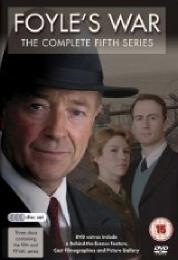
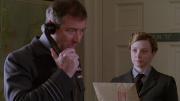
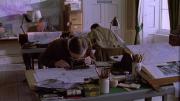
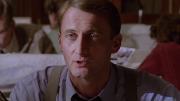
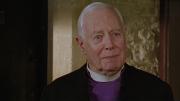
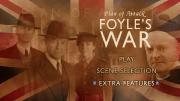

































Your Opinions and Comments
Be the first to post a comment!